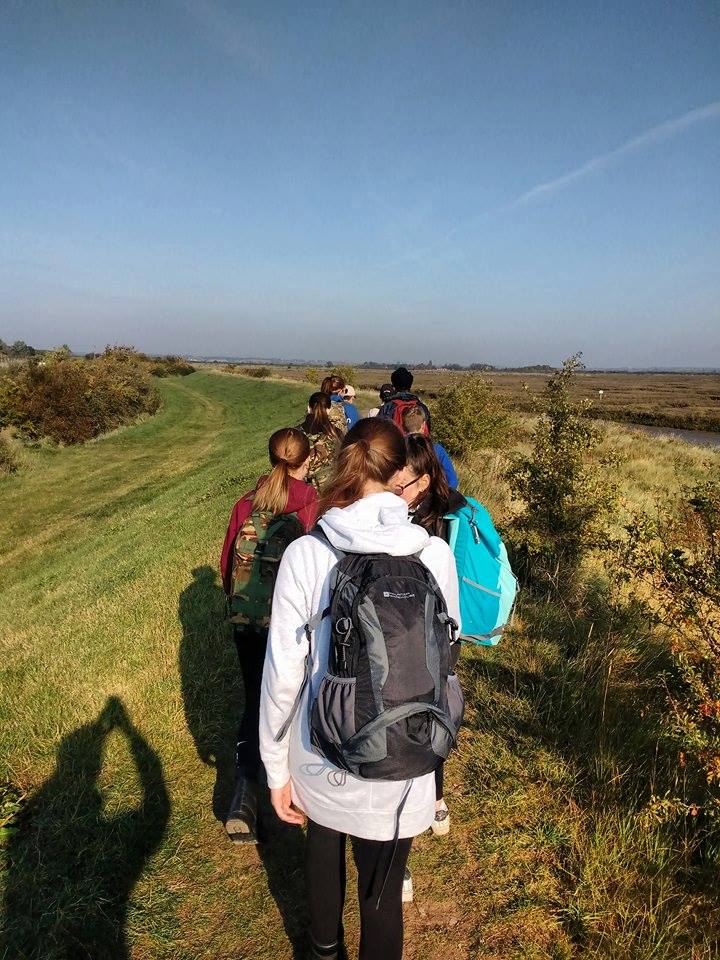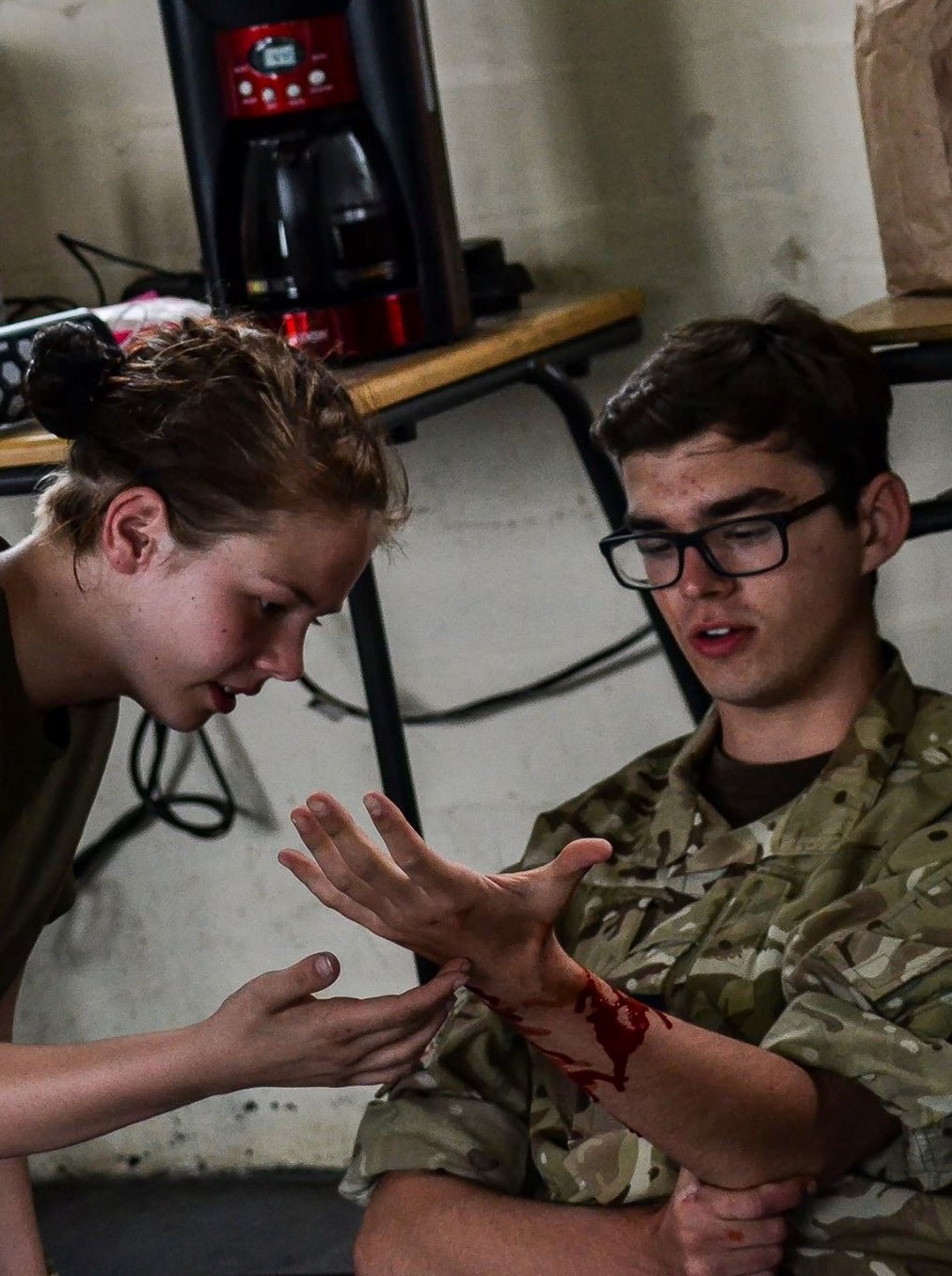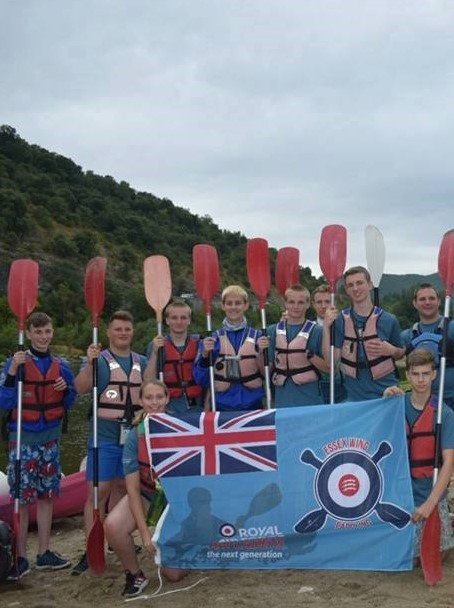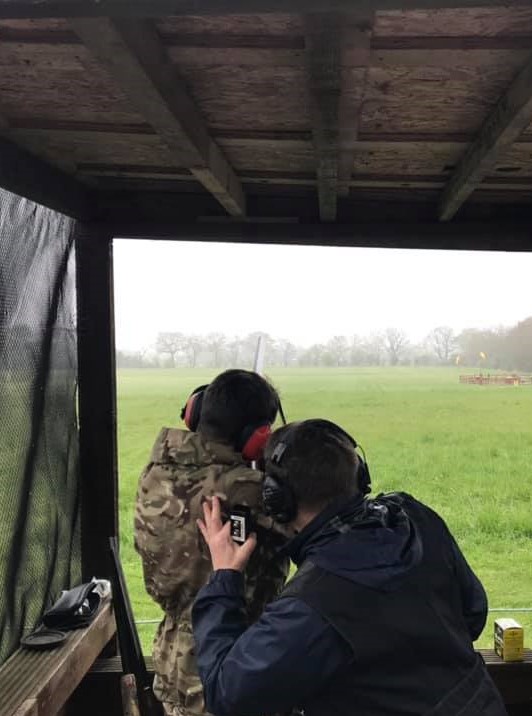
You may of heard of the DofE (Duke of Edinburgh) Award, but don't know what it is or whether it's for you. Well, it's for everyone who likes a challenge. Their mission is simple - 'to inspire, guide and support young people in their self-development, and recognise their achievements'.
To put it another way, they help you succeed. With the same sense of adventure that drew you to the Air Cadets in the first place, the DofE takes you through a programme of activities that will leave you a more confident, motivated and capable person.
If you're 14 or over, then you can begin - just ask any of the instructors and they'll help you get started. For more information now on everything DofE, follow this links to visit their official website.D of E
There are three levels which, when successfully completed, lead to a Bronze, Silver or Gold DofE Award. And it's never too late to get in on the action - depending on your age you may be able to jump straight in at Silver or Gold leve
We're proud to be the DofE Award's largest participant.

In the Air Training Corps first aid is considered to be a very important skill to have and so is mandatory for all cadets.
The HeartStart UK first aid course is a two hour course completed as part of the First Class Cadet training syllabus.
The course content includes performing cardiopulmonary resuscitation (CPR), dealing with choking, serious bleeding and helping someone that may be having a heart attack. According to the British Heart Foundation over 1.4 million people have been trained through the Heartstart UK initiative. Upon completion of this short course the cadet is awarded with a certificate of their attainment.
The St John Ambulance Youth First Aid course as its chosen and recommended standard of First Aid to teach its cadets. It is available to those studying for Leading or Senior Cadet classifications. We will spread this content over a number of parade nights to lighten the load. There is also the option to complete the whole course over a weekend.

Adventurous Training is an essential part of the Air Cadet's training syllabus and the place where team effort really matters - you'll build new friendships, and learn to rely on the other people you're with to get the job done. It also lets you show off your leadership qualities.
Remember, whatever your personal tastes, nothing is compulsory. There is a wide range of adventurous activities to get stuck into, so if climbing isn't for you perhaps canoeing is. Sometimes what's on offer depends on the squadron you attend, but everything you do is supervised by qualified trainers who will ensure you get the most out of it.
You can also attend a week Aventure Training camp and try your hand at everything, you will never know what your capable off until you try.
Between local activities and visits to camps, you will have the chance to experience kayaking, hill walking, camping, caving, mountain biking, offshore sailing, Rock Climbing, Abseiling, Canoing, Parachuting and winter sports to name just a few.

Joining the Air Cadets opens up lots of opportunities, including the chance to fly! It’s our aim to get you airborne as often as possible, as a passenger in a light aircraft, a glider or even on-board RAF aircraft such as our Typhoon fast-jet or a Chinook helicopter..
There are plenty of opportunities for cadets to get in the air. Air Experience Flights could even see you take to the skies in a Grob Tutor light aircraft.
You will normally start with practicing in the squadrons very own flight simulator, Once you have mastered the basic principles of flight you will move on to ground training in a part task trainer (PTT), Then your ready for your first flight in a powered aircraft of glider, this will earn you your first set of blue wings.
You could also apply for one of the flying or gliding scholarships that the RAFAC offer per year. Or attend the Qualified Aerospace Instructor Course, these are all age dependent.
The only limit is what you place on yourself.

Whatever level you are as a cadet, you'll have the opportunity to try your hand at military skills and drills including shooting.
Marksmanship goes a long way back in the history of Air Cadets and is one of our most popular activities. Think you can concentrate on distant targets and fire with consistent accuracy? It's not easy. It requires focus, concentration and a very steady hand.
We’ll teach you to handle a variety of weapons safely. Basic firing is always done lying on your stomach (the prone position) at static targets. Progress through the syllabus and you'll experience different types of weapons, firing positions and could even take part in shooting competitions if you really prove your skills.
Ranges come in different shapes and sizes but all are in controlled conditions with full training on any weapon that you handle - safety is our top priority. To start with you'll be firing at targets that are fairly close - around 25m away. As you advance through weapons and your skill builds, you will fire at targets 100m or more away.

Do you have a flair for music? It plays a popular role in the life of cadets and playing as part of your squadron band is highly rewarding - competition for places is usually strong. Our aims are to introduce you to music within the cadets, provide you with musical instruction and the opportunity to play in our bands.
You may already be good at an instrument, but don't worry if you're new to playing music - if you have talent we'll help you make the most of it. Here are some standard band instruments (but we cater for other instruments too - for instance, there's also an Air Cadet String Quartet):
Saxophones, Bugles, Cornets & Trumpets, Trombones, Basses, Cymbals, Side drum, Bass Drum, Bell Liar
Taking to the stage and representing your squadron, or playing at parades, is a vital part of the cadet experience, and if you've never played an instrument before, this is your chance to chalk up another skill that air cadets can help you discover and make the most of